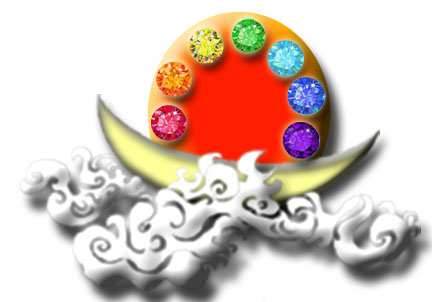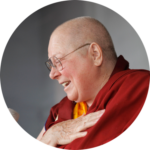The following is a complete listing of the latest translations of the titles to the ninety erroneous views contained in the Supreme and Unsurpassable Mahamudra of Liberation. However not all of the links to the related BLOG articles have been established yet or those articles revised to reflect these titles.
Erroneous Views:
1: Acknowledging the Shifting the Mind Practice as a meditation practice
2: Acknowledging sitting meditation as cultivating oneself
3: Acknowledging that forming mudras and chanting mantras is doing a dharma practice
4: Acknowledging that doing a dharma practice is cultivating oneself
5: Acknowledging that studying the teachings of the sutras is learning from Buddha
7: Acknowledging that a master may make unreasonable demands upon disciples
8: Acknowledging the existence of evil doctrines but not informing living beings about them
10: Acknowledging that Buddhist pills can cure all illnesses
11: Acknowledging that after one may eat meat after one is tonsured and becomes a monastic
12: Acknowledging it is acceptable not to practice bodhicitta after one receives an initiation in a great dharma
13: Acknowledging it is acceptable not to practice the six paramitas
14: Acknowledging that there exists a highest dharma that corresponds to all living beings
15: Acknowledging the validity of initiations remotely controlled from another place
17: Acknowledging that cutting off self-attachment entails not caring about the suffering of others
19: Acknowledging that holders of a legitimate lineage are all upright great masters
20: Acknowledging it is acceptable to perform an initiations in a Buddha-dharma whenever money is given
21: Acknowledging that the successor to the highest dharma position in a large temple is definitely a holy person
22: Acknowledging that small temples do not have eminent monastics
23: Acknowledging that after one has illuminated one’s mind and seen one’s original nature, one may slack off in one’s practice
24: Acknowledging to may postpone learning from Buddha until one is less busy with worldly matters
25: Acknowledging that having numerous disciples makes one a holy and virtuous person
26: Acknowledging someone without holy realization or bodhicitta as a true holy person
27: Acknowledging a terma as a holy object when it is not a terma in the definitive sense
28: Acknowledging that one may intentionally deny what one has said or done
32: Acknowledging that living beings in other realms do not have Buddha-nature
33: Acknowledging that as long as one has dharma, one will attain realization powers
34: Acknowledging that one may make mistakes without immediately correcting oneself
35: Acknowledging that one who does good deeds and gives to others is definitely an eminent monastic or person of great virtue
36: Acknowledging that one may alter a dharma manual, mudra, or mantra
37: Acknowledging that Bodhisattvas do not have to acquire the five vidyas
38: Acknowledging that a master may demand and take property from disciples
40: Acknowledging as a virtuous person and paragon of holiness one who praises oneself and shows off
41: Acknowledging that sons or daughter need not kindly guide their parents toward correct views
42: Acknowledging the false claim that a mandala is a holy mandala when it was not made with colored sand that penetrated through a boulder
44: Acknowledging pills made of ordinary medicine as authentic holy nectar
49: Acknowledging that taking refuge and receiving precepts is the refuge state
50: Acknowledging an unreal and illusory image, sound, or form as a holy miracle
51: Acknowledging that esoteric dharma is the highest dharma
52: Acknowledging that exoteric dharma is the lowest dharma
53: Acknowledging that there is no need for sick people to take medicine
54: Acknowledging that the only way to ascend to the pure land is by chanting the name of Amitabha Buddha
55: Acknowledging that only through the Zen sect can one illuminate one’s mind and see one’s original nature
57: Acknowledging that after one has received dharma and attained realization, one need not make offerings to one’s master
58: Acknowledging one of insignificant achievements in the five Vidyas as a person of great holiness and virtue
59: Acknowledging one with the mind and conduct of an icchantika as an eminent monastic
61: Acknowledging that great Bodhisattvas do not get sick
62: Acknowledging that disciples may be seated higher than the seat of their master of holy virtue
63: Acknowledging that Buddhist texts and images of Buddhas may be placed at a height lower than the seat of an eminent monastic or person of great virtue
65: Acknowledging that whose status is that of Buddha or Bodhisattva need not worship images of holy beings upon entering a temple
66: Acknowledging that certain living beings do not have Buddha-nature
67: Acknowledging a prediction that a great global disaster will occur in a particular year
68: Acknowledging that those who wear the clothing of a monastic or rinpoche are all holy people
69: Acknowledging that one who expounds dharma in a gentle voice is definitely a Bodhisattva
70: Acknowledging that using the Vajra voice to expound dharma and remove karmic hindrances is not compassionate
71: Acknowledging that one who uses Vajra bodhi conduct to benefit others is not one of holy virtue
72: Acknowledging a conceited, arrogant, and overbearing person as a Vajra master
74: Acknowledging acceptance of a master who has forsaken bodhicitta
75: Acknowledging that one who holds a recognition certificate issued by a great dharma king is definitely an authentic holy person
77: Acknowledging that demons are not to be edified but must be punished or killed
78: Acknowledging that one need not make food offerings to yakshas and hariti
79: Acknowledging that people must pay money in exchange for learning dharma or listening to dharma
80: Acknowledging that listeners of the dharma mat treat audio dharma recordings with disdain
81: Acknowledging that a master is able to transfer part of his lifespan to a disciple
82: Acknowledging that someone who received teachings at a famous temple is definitely an eminent monastic
83: Acknowledging that one who learned under many masters is definitely a holy person
84: Acknowledging that the spiritual capacity of females is not as good as that of males
85: Acknowledging that small living beings are inferior to large living beings
87: Acknowledging that one may use the pretext of building a temple, building a stupa, or conducting a dharma assembly to secretly accumulate money for oneself
88: Acknowledging that one may utilize charitable or disaster relief funds for one’s own greedy purposes
89: Acknowledging that cultivating oneself and learning from Buddha must require giving up work
90: Acknowledging that after taking refuge. one indeed is a Buddhist
CLICK for link to introduction to these erroneous views provided by the Office of H.H. Dorje Chang Buddha III and the Buddha Master’s comments. Please note that the translation of the titles given here will differ slightly from what has been revised in this blog. Neither translation reflects official approved translations and should be used for reference only.




Add comment